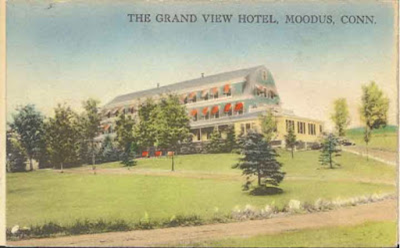Whose Torah Is It?
We were taught not to ask questions, to feel shame in having a question.
He taught his talmidim that most questions beginning with ‘Why?’ (unless they are in the form ‘Why does Rashi or Tosafos say this?’) are more likely than not to be products of the yetzer designed to deflect from a full Torah commitment. In question and answer sessions, he refused to answer as many questions as he was asked. First the questioner had to acknowledge what was really bothering him and how the information sought was relevant to his life.
Those words are from an article written about the dean about one of the BT schools after he passed away. Strangely, it is meant as praise, but to me and probably to most people, it sounds more like an indictment. You can hear how this man put people on trial for having a question.
The Torah is full of laws that can seem very strange to people in our era or actually any era. Not only that, but Torah literature intentionally phrases many ideas in a strange way so as to provoke questions. The Haggadah, which is designed to engage children, starts off this way. The highlight of the Haggadah is arguably “the four questions.” To mock questions as being products of the yetzer hara is extremely dangerous. The brain shuts off. You can crack up from this sort of treatment. Item 5 of CJ Hopkin’s 6 conditions of mind control includes, “If one expresses a question, they are made to feel that there is something inherently wrong with them to be questioning.” What can happen is the psyche goes into a kind of cytokine storm, where it attacks itself. It asks a question, as normal minds will, and attacks itself for asking a question. The Rambam says in Judaism we are supposed to use our minds:
All this comes to tell you that you should apply your mind to those things that it is capable of understanding. Studying those things that are beyond the inherent capacity of the mind to grasp can cause great harm…. It is important to note however that the statements of the prophets and sages are not meant to prevent a person from thinking and to completely close off intellectual endeavors and to prevent the intellect from grasping that which it is capable of understanding. As to fools and lazy ones who consider their deficiencies and stupidity as perfection and wisdom and the perfection and wisdom of others as deficiencies and religious transgression. Instead, they consider light as being dark and darkness light.
The Malbim offers a similar thought:
When it comes to religious belief it is not sufficient to rely totally on the rote learning of tradition. It is necessary for you to know yourself that G-d of your father by means of your own intellectual analysis and understanding.
Hashem gave you a brain. You are supposed to use it.
The Lubavitcher Rebbe also encouraged questions. In a letter to an engineer who was struggling to reconcile Torah and science he wrote:
…it is well known that our Sages were always happy when people challenged their words, since it showed that there was an interest in what they said, and most important, because it provided an opportunity to clarify and refine the ideas they had presented through the process of debate.
Thus, questions are not just good for the one asking them, but they are good for all us. They enrich the discussion.
Not only did the dean put people on trial for asking questions but for wanting to learn Torah at all. More from the article:
In that opening conversation, Rabbi Rosenberg also made clear that it was you, not he, and certainly not the Torah, that would have to change. The message was: You are on trial because I'm offering you something of infinite value, and I must first know that you are worthy of receiving it.
That first conversation with Rabbi Rosenberg proved for many to be the most uncomfortable of their lives. He had, said Rabbi Tzvi Teitelbaum of Silver Spring, Maryland, an uncanny ability to make the comfortable feel uncomfortable (as well as the ability to make the uncomfortable feel comfortable). Those on their way to the pinnacle of success in the secular world would come to him and find themselves on trial.
Is it his Torah? Did he own it? The Lubavitcher Rebbe said that Torah was given in a desert to demonstrate that just as nobody owns the desert, nobody owns the Torah. All Jews have a right to learn it. They don’t have to prove themselves to the dean of Machon Shlomo.


Comments
Post a Comment